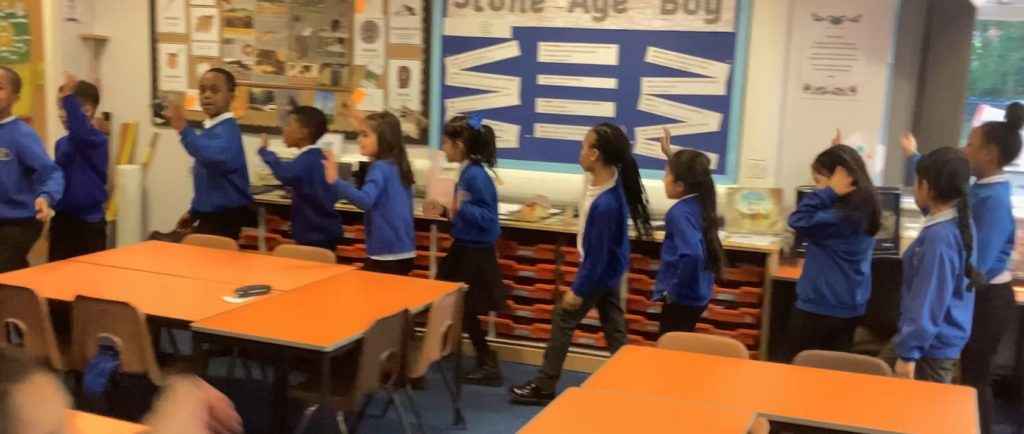Music Curriculum
Intent
At St Philip’s Primary School, it is our priority to make music a great learning experience. Music and performance can be a way for children to develop self-confidence and explore the arts in a creative way. Music can play an integral role in helping children to feel part of a community and we are lucky at St Philip’s to have children who come from communities and cultures all over the world. Learning about different types of music can connect us to these communities and is a way that we can help children at St Philip’s celebrate their identity and their diverse backgrounds.
Music teaching at St Philip’s Primary School aims to follow the specifications of the National Curriculum; providing a broad, balanced and differentiated curriculum and ensuring the progressive development of musical concepts, knowledge and skills. At St Philip’s we want children to have the opportunity to listen to and learn about different types of Music, and to be able to create their own. We want children to develop an understanding and appreciation of Music, having the opportunity to listen to a wide range of composers, cultures and genres.
Implementation
Music Express:
We at St. Philips use the musical scheme Music Express to teach the pupils their music. Music Express is a lively, energetic way of teaching the key skills associated with music such as appraisal, composition, singing, improvising and performing. From EYFS through to Year 6, the pupils will listen to and learn from a huge variety of songs and genres, from Classical right through to New Wave and everything in between. A typical lesson, which happens once a week, will focus around an idea the pupils are learning such as tempo, beat or improvisation. The pupils will engage in a warm-up section which will ease them into the musical idea. After this, the learning will centre on one or two key songs which the pupils will listen to and usually play along with, sing along with and/or appraise. These exciting lessons will also include using a variety of the school’s instruments like recorders, xylophone, ukuleles and percussion instruments like tambourines and drums. Knowledge
Impact
Our music curriculum is planned to demonstrate progression and build on and embed current skills. We focus on progression of knowledge and skills in the different musical components and teaching of vocabulary also forms part of the units of work. If children are achieving the knowledge and skills in lessons, then they are deemed to be making good or better progress. We measure the impact of our curriculum through the following methods:
- Pupil discussions and interviewing the pupils about their learning (pupil voice).
- Annual reporting and tracking of standards across the curriculum.
- Photo and video evidence of the pupils’ practical learning and performances.
- Use of the assessment tools provided within the Music Express scheme.
- Dedicated music leader time.
Aims:
The aims of our Music curriculum are to develop pupils who:
- Enjoy and have an appreciation for music.
- Listen to, review and evaluate music across a range of historical periods, genres, cultures,
- styles and traditions.
- Can sing and use their voices to create different effects.
- Create and compose music, both on their own and with others using a range of instruments
- and music technology.
- Use a range of musical language.
- Make judgments and express personal preferences about the quality and style of music.
- Take part in performances with an awareness of audience.




